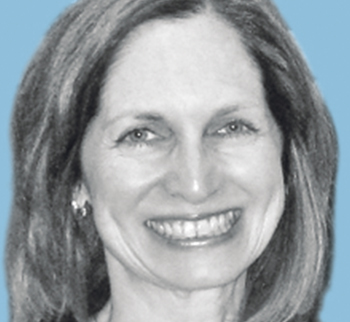As a rule, I don’t post anything political on Facebook. Recently, I made an exception after reading an opinion piece in the New York Times by Nimrod Nir subtitled “A Palestinian Saved My Life”.
I thought it was a wonderful piece, sensitively written and very human. In it, Nir muses about the Palestinian worker from Gaza who came to his rescue after a life-threatening injury in 1996, when he (Nir) was 13 years old. The worker, who was doing renovations in Nir’s home, shouted at Nir’s stepfather, Israeli politician Silvan Shalom, to convey the urgency of the situation – a scenario that would be unthinkable today.
Nir, addressing both Israeli and Palestinian perspectives, makes the case that lack of contact with people on the other side dehumanizes them, and makes killing easier.
I knew that sharing the link to his article meant I was opening my Facebook page to the type of discussion I usually try to avoid. I’m not confrontational by nature, nor am I political. I joined Facebook five years ago to stay connected to family and friends, not to debate them.
Soon after I posted the link, a childhood classmate – who I reconnected with a few years ago – commented on it. She said among other things that the IDF has become a terrorist organization.
I posted a quick reply to this friend, who is Jewish, but a more considered answer had to wait until later in the day. There was a broader context to address, and I did the best I could, one point at a time.
My friends who support Israel were shocked by her posts. Some were distressed, others angered. One person suggested resources that I could share with her, another said there’s no point engaging in discussion because I won’t change her mind, and a third advised that I seriously reconsider having her as a friend.
I’ve been thinking a lot about what they said.
I didn’t share the resources that were suggested, because I doubted that she would consider them credible.
It hadn’t occurred to me to try to change her mind, either. I knew such an outcome was unlikely. I did want to provide context, challenge her assumptions, and remind her that words can do harm, especially if they over-generalize or lack context.
I know she has a good heart and a good mind, but it seems that she’s closed them both to Israel, and I told her so.
I was frustrated and upset by her comments. And sad. I found myself thinking of The Blind Men and the Elephant, a children’s fable in which a number of blind men describe an elephant after each one feels a different part of the animal. Individually, the men learn only about one discrete part of an elephant – a tusk, a tail, an ear. They recognize only one small part of the story.
My Facebook friend wrote of her friends in Gaza who are suffering. Human suffering is a terrible thing, I told her, adding that Israelis are suffering too.
Should I have unfriended her? I didn’t. Ultimately, I believe it would contribute to the type of situation Nir was referring to in his New York Times piece. If there’s no contact at all, how do you see the other side as human?
I did delete the whole exchange, which included two angry comments directed at my friend. I was surprised there weren’t more.
I am sad for her Palestinian friends who are suffering. I am sad that her comments failed to acknowledge the suffering going on in Israel. I am sad that she didn’t seem to want to consider anything that didn’t support her point of view.
I don’t condone inflammatory, inaccurate or hateful statements, but I wonder how anyone will understand anything if we communicate only with people who share our view of the world.
